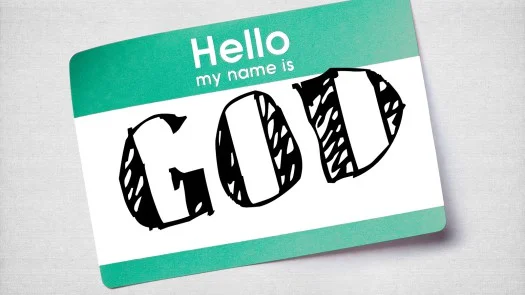Our understanding of our identity drives our actions. It's incredibly important. That's why the teenage Middle School/High School years can be so challenging - we're figuring out who we are. The smart kid? The jock? The musician? The popular one? Then just when we maybe feel like we're getting a handle on it, we leave our parents home and care and we have to figure it out all over again. And then when we become parents, we often wrestle with redefining our identity again.
I'd go so far as to say our entire life is a process of learning our identity, then processing new developments which cause us to revise our understanding. But what we understand about our identity drives us.
As a result, I think it's incredibly important to understand God's revealed identity.
It seems pretty clear to me that the #1 identifier he uses is Father.
Not Master or Boss or even Creator. All things he is qualified and deserving to be; but he choses Father.
This means my #1 foundational identity should be son or daughter of God. Everything else must build on top of that.
I was talking with my friend Daniel this weekend and he mentioned the fact that at one time, he worked for a billionaire. Daniel got a chance to encounter the society of super rich people and he said he found it to be vacuous and empty.
If you've every been around wealthy people who discuss nothing but renovating their houses and real estate considerations, you'll know all about this. This is why many studies have found that being ultra wealthy doesn't lead to increased happiness - that when your net worth becomes your core identity, your inherent value as a person becomes a number. The fact that the number is a dollar amount is not better or more meaningful than if it was the number of gummy bears you've eaten in the past 10 years.
But billionaires are far from the only ones who make this mistake. For some, our core identity is in our work performance. Or how good looking or smart or athletic we are. Or our gender, or nationality, or ethnicity.
My being "white," "American," or "man" are all valid components of my identity - at least on this earth, but none should be my primary identity. They must all take a backseat to the primary identity God gives me of Beloved son.
Understanding God's identity informs mine.
It's why when people realize that God made them, knows everything about them, yet still loves us enough to have gone through the torture of the cross for us, it transforms us into a new person. I'm no longer an addict, or a failure, or a millionaire, or smart as a primary identity. Being a child of God moves all that off the center spot.
It's why prayer and worship and baptism and communion are all important - they all remind me of who God is and therefore who I am.
Look at how Jesus taught us to pray: "Our Father in heaven..."
The first thing he does is teach us to remind ourselves of God's identity.
And the more we learn about God's identity, the more it shapes us.
In Generous Justice, Tim Keller argues that God's #2 identity - after Father - would probably be the idea that God stands with the poor and the oppressed.
He argues persuasively that God identifies most closely with the outcast. The undesirable. The unloved.
One of the primary charges given to the rich and the rulers of Israel was to defend orphans and widows. To make sure justice and other advantages weren't slanted toward the rich. The protect the foreigner.
If we begin to understand this about God, it begins to change us. What we value. How we view important questions in our world. Too often we in the church world can forget about this. We can start to care more about our own comfort and convenience.
But God never stops being the shepherd who will leave behind the 99 in order to find the 1 stray sheep.
Life is a constant process of defining our identity, but it's important that the foundation is solid, otherwise we become, as James says, "Like a wave of the sea, blown and tossed around by the wind."
When live makes no sense and you can't catch a break, know that there are seasons in life, and that it's normal to question our place and our role, but we must keep our core identity at the forefront, lest we be led around by our feelings, our fears, or dangling carrots.

